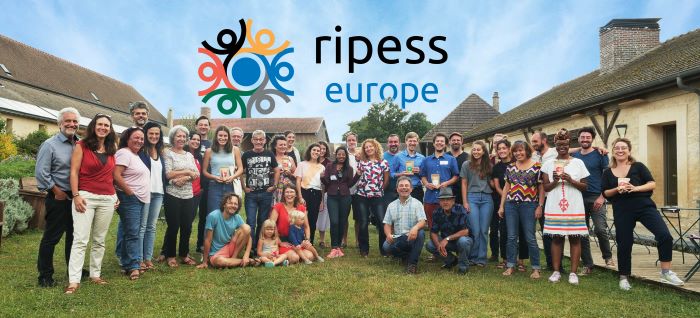Who we are
RIPESS Europe – Solidarity Economy Europe, was born from the synergy produced by the meetings of the Globalisation of Solidarity organised by the intercontinental network RIPESS Intercontinental, the first of which took place in Lima in 1997. The 4th International Forum of “Globalisation of Solidarity”, Lux’09, which took place in Schifflange in April 2009, led to the launching of a dynamic by establishing trust and shared-knowledge between networks of the social and solidarity economy (SSE) at continental and intercontinental levels. During this meeting, Eric Lavillunière (INEES) and Christine Gent (WFTO) initiated the structuring of a European RIPESS platform.
In Barcelona, in 2011, RIPESS Europe was born. It included representatives of networks from Belgium, Catalonia, France, Spain, Hungary, Italy, Luxembourg, Portugal, Romania and Germany.
News from Europe—
First European Report on Ethical Finance
Ethical finance is very different from speculative finance, this is why it allows to preserve and increase economic value to savings over time and add to the last line of your account statement a series of other values, such as respect for the environment, struggle against global warming, housing rights, inclusion of people and organizations traditionnally excluded from the financial [...]
RIPESS EUROPE’s Webinar: Public policies, the stake of the Solidarity Economy. Nov 24
RIPESS Europe and its members are actively investing in the co-construction of public policies at a national and European level, pursuing an objective of general interest and the development of the Social Solidarity Economy (SSE). Given the diversity of public policy frameworks in the territories and the different levels of consideration of the SSE in relation to the national framework, we [...]
A Charter For Developing Commons Of Data And Mapping
One of the earliest such maps was TransforMap, a project with origins in Austria and Germany that is using OpenStreetMap as a platform for helping people identify and connect with alternative economic projects. (…) As the varieties of maps proliferate, there is growing concern that the mapping projects truly function as commons and be capable of sharing data and growing together. But [...]




